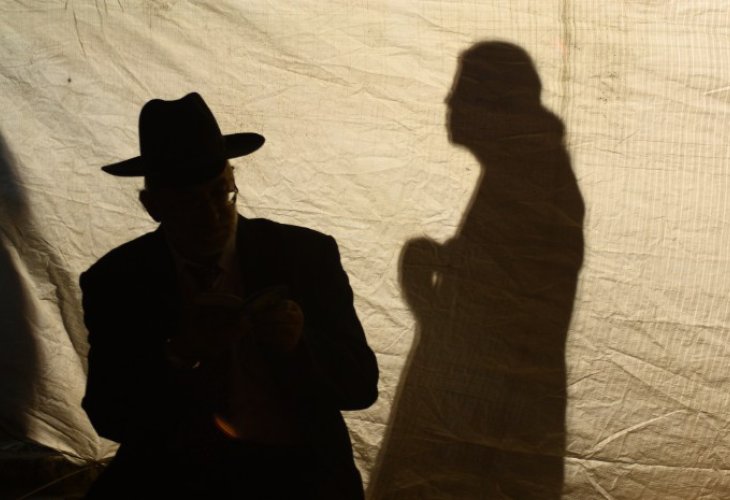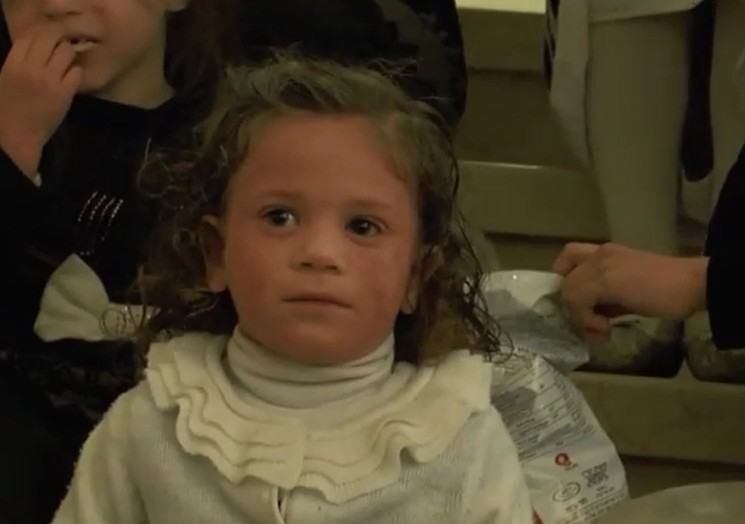Does Your Child Have Severe Itching? It Might Be Eczema
Many parents are familiar with the issue: rashes and annoying redness on the baby's or child's skin, leading to itching, sometimes until bleeding. Atopic dermatitis, or eczema, is usually resolved with simple treatment. But in rare cases, treatment doesn't help, and nights of pain persist. Learn about the 'Kumi Ori' organization that assists families, the foods to avoid, and how this condition offers a lesson in gratitude.

Many parents are aware of the condition: small rashes and irritating redness that appear on the baby's or child's skin at some point in their life, causing relentless itching, sometimes until bleeding. In medical terms, this is known as atopic dermatitis or, in Hebrew, eczema.
It's a condition that can usually be managed with the use of a moisturizing cream (or another treatment prescribed by a family doctor), which significantly eases the itching and doesn't produce additional side effects. However, in rare and infrequent cases, the treatment may not help. Parents and their children then face a wall of helplessness. These parents endure sleepless, exhausted nights and desperately wish for a helping hand, for light at the end of their dark tunnel. Yet not everyone knows where to turn or from whom to seek help.
Chava Rubin from the central region - a mother of two children suffering from atopic dermatitis - reassures and says that while it is an unpleasant situation, both for parents and children, thank Hashem there is hope. "There is an organization called 'Kumi Ori' that greatly helps parents in our situation. Besides providing guidance, direction, and support for every step we took, they organize an annual retreat in Switzerland, whose air is known for its healing properties and truly helps in healing the wounds." These fun days for the children are combined with mother meetings where they share their difficulties, support each other emotionally, and learn together how to cope, in lectures delivered during the retreat by the best doctors in the field.
 Child with atopic dermatitis (screen capture from 'Kumi Ori')
Child with atopic dermatitis (screen capture from 'Kumi Ori')When and how did you discover the condition?
"When my son was two months old, we noticed a rash on his body and face. We didn't get too excited. We attributed it to the delicate skin of babies at that age and breastfeeding, and were sure it was something that would pass quickly. To be more at ease, we took the child to the doctor, and he confirmed it was a 'normal' rash and that there was no real cause for concern."
"Sometimes, all a child needs is to be understood"
But after a few days - not only did the rash not go away, it became a real nuisance. "When he started screaming at night, we understood it was somehow related to the rash, and it was probably much more serious than the initial diagnosis." Then the shifts between her and her husband began. They would wake up at night and try just about everything - moisturizing cream, anti-itch drops, anti-allergy cream, and more. "As the child grew and started consuming additional foods, we discovered that some of the wounds were due to allergies to foods like milk, fish, Bamba (a peanut snack), nuts, and more, and of course, we immediately stopped giving them. To this day, there are products that don’t come close to our home, even though my husband and I love them very much – like eggs, for example. It poses a clear life threat to the children."
Do you mean your second daughter?
"Yes. She also developed the condition at a very young age, but thank Hashem her symptoms are much less severe than what my son had."
What do you mean by severe, and how does the environment react?
"First of all, the appearance," Chava explains. "Wounds and pimples all over the body - it's not exactly a pleasant sight, especially when they appear on the face and border on bleeding. I will never forget coming with my little son to a family celebration to 'show him off,' and finding it very difficult to endure the looks of shock in people's eyes. I was deeply hurt. In my eyes, he was the sweetest and most amazing child there is, but looking back, I understand the aversion, to a sight that I already got used to.
"When I look at his photos from that celebration and see the bloodstained wounds on his face, I can’t help but agree with those individuals, yet it was very hard to bear it firsthand. We already went through indescribable suffering with him – once, he was even hospitalized for over a week when a wound on his neck, which he had scratched until it bled, became seriously infected. As a parent, it’s not easy to watch your child suffering – waking up at night crying because his whole body itches, not understanding why it’s happening to him and longing for relief."
So how do you help him?
"First of all, and this is important for parents to know and internalize, you can’t always help, even though we try in every possible way. Sometimes, all the child needs is to be understood, to be caressed, to be given love and empathy. Sometimes, all he needs to hear is 'We are here beside you, we understand that it hurts, it hurts us that it hurts you, but thank Hashem, this will pass. Have patience.' And the child understands, even when he is a baby."
"It's a profound lesson in personal growth for all of us, and I’m not sure we’d give it up so easily"
According to Rubin, the price the children are required to pay is multiple, and they pay it out of necessity. "From a very young age, my children learned not to envy what others have and not to ask for 'luxuries.' If once I had an 'excuse for a celebration' to prepare a dairy meal in honor of Rosh Chodesh - today the children know there is no such thing at our house. The same goes for sweets, snacks, and dairy products they see at friends’ homes. I think it's an invaluable lesson in character improvement for all of us, and I'm not sure we’d give it up so easily, despite being learned the hard way."
And what foods can the children enjoy?
"Thank Hashem, in today’s abundance – there is no shortage of what can be given to the children. For dairy products, there are plenty of healthier and less dangerous alternatives like soy-based desserts that are pareve, dark chocolate, and more. At the 'Kumi Ori' organization, we were specifically guided on what can be given, and what is absolutely forbidden and I definitely recommend consulting with them."
Rubin emphasizes that despite the challenge of caring for two children with the condition, the simple knowledge that Hashem has granted them sweet, smiling, and amazing children – makes them feel like the happiest people on earth. "You must be thankful for everything. Thank Hashem, aside from this 'small' problem, everything is fine with them. We are people full of faith who believe that 'everything Hashem does is for the best.' Everything that Hashem does is for the best, even if we don’t fully understand His intentions, and wonder why a small child has to suffer so much. There’s nothing that is not directed from above. There’s so much to be grateful to Him for, and can you even think that because of one thing that doesn’t go as we wish - we would fall into sadness and bitterness? No. We have no complaints, we accept the challenge with love. With so much kindness happening every day, all that's left is to see the glass as half full, and with that outlook - everything becomes much easier."

